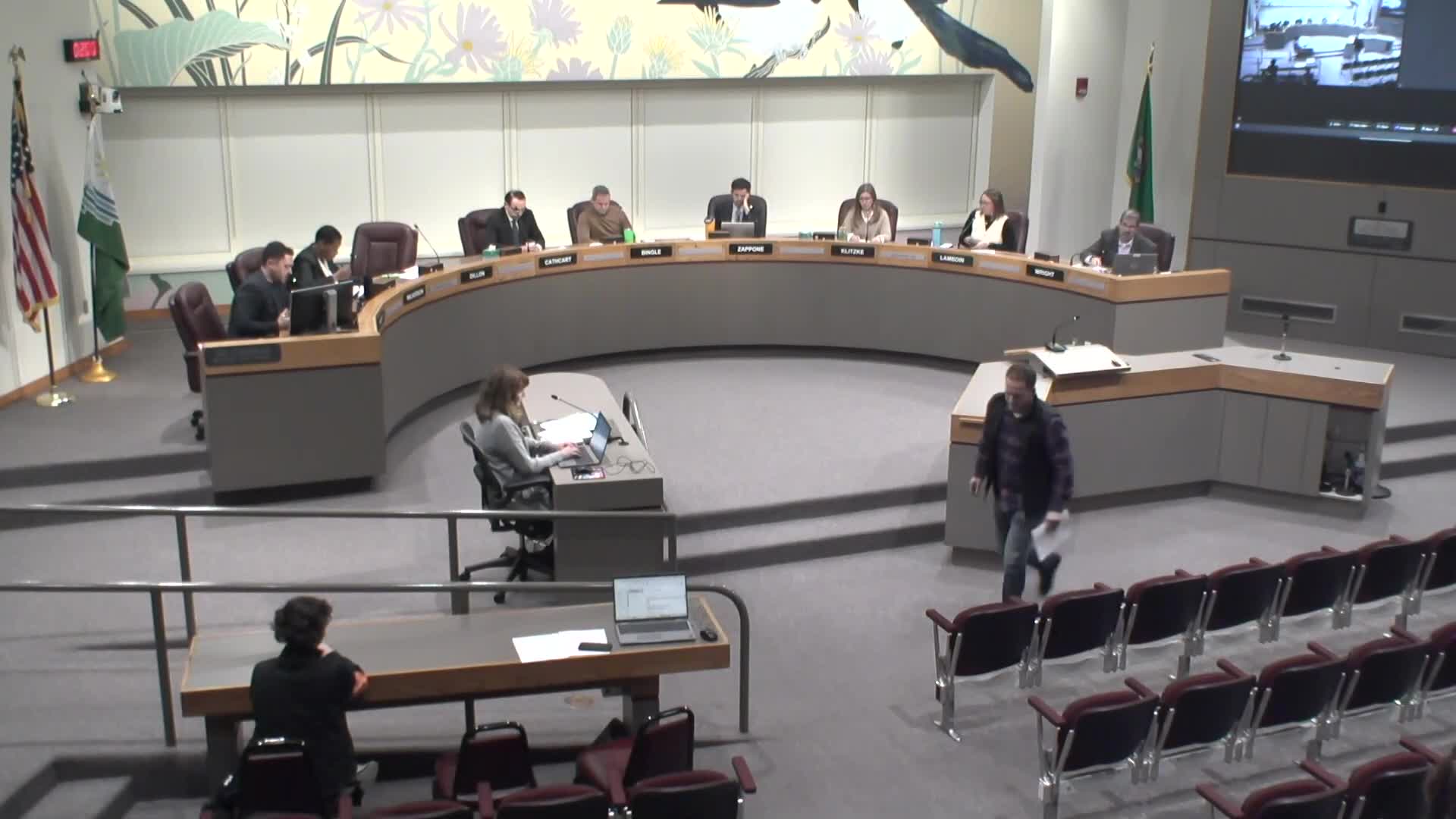City advances homelessness response funding: ERP contract, HUD grants and New Roots tiny‑home operator recommended
Get AI-powered insights, summaries, and transcripts
Subscribe
Summary
Council received briefings on an $8.0M ERP contract to resolve encampments, HUD formula grants (HOME, CDBG, ESG), and CHHS’s recommendation to select CAT to operate 30 New Roots tiny homes under a $975,000 award.
City staff briefed the council on several coordinated homelessness and supportive housing actions on Nov. 10, including an ERP contract with the Washington Department of Commerce, HUD formula grant agreements and the selection of an operator for the New Roots tiny‑home village.
Carrie Sederquist said the ERP (Encampment Resolution Program) contract totals about $8,000,002.71 and will be used to connect unsheltered individuals on state or city property to shelter and supportive services. Program elements named by staff include shelter beds through Catholic Charities and Catalyst, emergency beds via Revive, longer‑term housing with services through Catholic Charities and Revive, and the New Roots tiny‑home village. Sederquist said the administration fee for this award is a little under 6 percent; she noted Commerce‑funded projects can typically allow up to 15 percent for administration but the true cost basis determines what is billed.
Heather Page presented HUD formula grant agreements that require council signature: HOME ($1,138,478.43), ESG ($267,764) and CDBG ($3,017,244). Page said the city will take the full allowable administrative percentages on those programs (HOME 10 percent; CDBG 20 percent; ESG split per program rules) and that staff will provide further clarification as needed.
Bridal Anderson briefed the New Roots tiny‑home project, saying the CHHS board recommended Compassionate Addiction Treatment (CAT) as the operator following an August RFP. The award amount is $975,000 (a mix of opioid-settlement dollars and ERP funds) to fund operation of 30 tiny homes and associated services; the RFP contemplated an operational start date of Nov. 1, 2025 with a contract period through Dec. 31, 2026. Staff said the tiny homes themselves were purchased by nonprofit partners (Waters Meet Foundation and the Pallet Home Company, plus a Low Income Housing Institute contribution) and estimated the total procurement for 30 homes and related community facilities to be in the ballpark of $700,000 (staff asked to confirm exact figures in the file).
Council members asked about per‑bed costs and whether the operator contract represented value compared with other state services; staff noted per‑bed comparisons vary with care level and cited higher per‑day rates for state services in some adult family home or assisted-living settings. Questions also covered procurement and liability: staff clarified the city does not own the tiny homes and liability for the physical units rests with the private purchasers.
Next steps: staff will finalize contract documents, provide the proposed CAT operating budget for review, and return to council if additional approvals are required. Council also asked staff to supply detailed budget attachments and vendor/operator contracts to support oversight.
